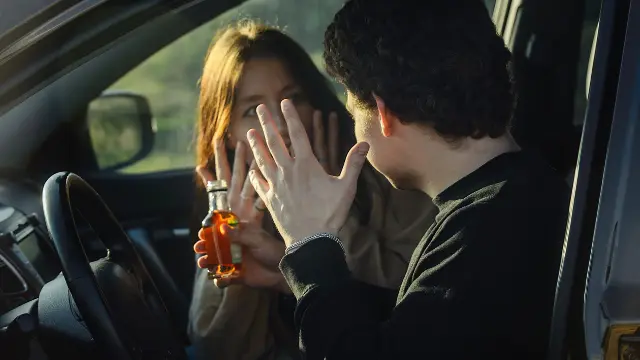

Driving under the influence (DUI) is dangerous for anyone, but it’s especially risky for young drivers. When someone under 21 drinks and drives, they face unique challenges and consequences. Let’s explore why underage DUI is such a serious issue and what young drivers need to know to stay safe and avoid legal trouble.
Why Underage DUI is Different
For drivers under 21, the rules about drinking and driving are much stricter than for adults. Most states have “zero tolerance” laws, which means that any amount of alcohol in a young driver’s system is illegal. While the legal limit for adults is usually 0.08% blood alcohol concentration (BAC), for underage drivers it can be as low as 0.00% to 0.02%. This means that even one small drink can put a young driver over the legal limit.
The reason for these strict laws is that young drivers are already at higher risk on the road. They have less driving experience and are more likely to take risks. When you add alcohol to the mix, it becomes even more dangerous. Drivers aged 16-20 are 17 times more likely to die in a crash when they have a blood alcohol concentration of 0.08% compared to when they haven’t been drinking.
Legal Consequences of Underage DUI
Getting caught driving under the influence as a minor can have serious legal consequences. These may include:
- License suspension: Most states will take away a young driver’s license for at least a few months, and sometimes up to a year or more.
- Fines: Underage DUI can result in hefty fines, often ranging from hundreds to thousands of dollars.
- Mandatory education: Many states require young offenders to attend alcohol education classes or counseling.
- Community service: Courts may order community service as part of the punishment.
- Possible jail time: In some cases, especially for repeat offenses or if someone was hurt, a young driver might face time in juvenile detention or even adult jail.
These penalties can have long-lasting effects on a young person’s life, making it harder to get to school, work, or other activities.
The Impact on Future Opportunities
An underage DUI doesn’t just cause immediate problems – it can affect a young person’s future in many ways:
- College admissions: Some colleges ask about criminal records, and a DUI conviction might hurt a student’s chances of getting in.
- Scholarships: Many scholarship programs have rules against giving money to students with criminal records.
- Job opportunities: Some jobs, especially those involving driving, might not be available to someone with a DUI on their record.
- Insurance rates: Car insurance becomes much more expensive after a DUI, sometimes doubling or tripling in cost.
- Travel: Some countries don’t allow people with DUI convictions to visit, which can limit future travel plans.
Prevention Strategies
The best way to avoid these problems is to never drink and drive. Here are some strategies that can help:
- Plan: If you’re going to a party where there might be alcohol, plan how you’ll get home safely before you go.
- Use ride-sharing apps: Services like Uber and Lyft make it easy to get a safe ride home.
- Designate a sober driver: If you’re going out with friends, choose one person to stay sober and drive everyone home.
- Call a parent or trusted adult: Even if you’re worried about getting in trouble, it’s always better to call for a safe ride than to risk driving under the influence.
- Stay overnight: If possible, arrange to sleep over at the place you’re visiting so you don’t need to drive home.
Case Study: Sarah’s Story
Let’s look at a real-life example to see how an underage DUI can affect someone’s life. We’ll call our example person Sarah.
Sarah was a 17-year-old high school senior with good grades and plans to attend college. One night, she went to a party where she had two beers. Feeling “fine to drive,” she decided to drive home. On the way, she was pulled over for swerving slightly.
Here’s what happened next:
- The officer smelled alcohol and asked Sarah to take a breathalyzer test.
- Sarah’s BAC was 0.03%, which is over the legal limit for underage drivers in her state.
- Sarah was arrested and charged with underage DUI.
- Her license was suspended for 6 months.
- She had to pay a $500 fine and attend 20 hours of alcohol education classes.
- Sarah’s parents’ insurance rates doubled.
- One of the colleges Sarah applied to rescinded her acceptance after learning about the DUI.
- Sarah had to delay starting college for a year and attend a different school.
This case shows how one mistake can have far-reaching consequences. Sarah’s decision to drive after drinking affected her education, her family’s finances, and her future opportunities.
The Road to Recovery
If a young person does end up with an underage DUI, all hope isn’t lost. Here are some steps they can take to move forward:
- Complete all court-ordered requirements fully and on time.
- Seek counseling or join a support group to address any underlying issues with alcohol.
- Focus on school or work to build a positive record.
- Be honest about the mistake when applying for schools or jobs, and explain how you’ve learned and grown from the experience.
- Consider volunteering for organizations that work to prevent drunk driving.
Remember, an underage DUI is a serious matter, but it doesn’t have to define a person’s entire future. By making better choices and working hard, young people can overcome this obstacle and create a brighter future for themselves.
Frequently Asked Questions (FAQs)
- Can I refuse a breathalyzer test if I’m under 21?
You can refuse, but in most states, this will result in automatic license suspension and may be used against you in court. - Will an underage DUI stay on my record forever?
It depends on the state, but many allow you to expunge (remove) the record after a certain period if you meet specific requirements. - Can I still get financial aid for college with an underage DUI?
You can still get federal financial aid, but some private scholarships may be affected. - What happens if I get caught driving on a suspended license after an underage DUI?
This is a serious offense that can result in additional fines, longer suspension, and possible jail time. - Can my parents’ insurance drop me after an underage DUI?
Insurance companies can choose to drop drivers after a DUI, or they may significantly increase rates.



